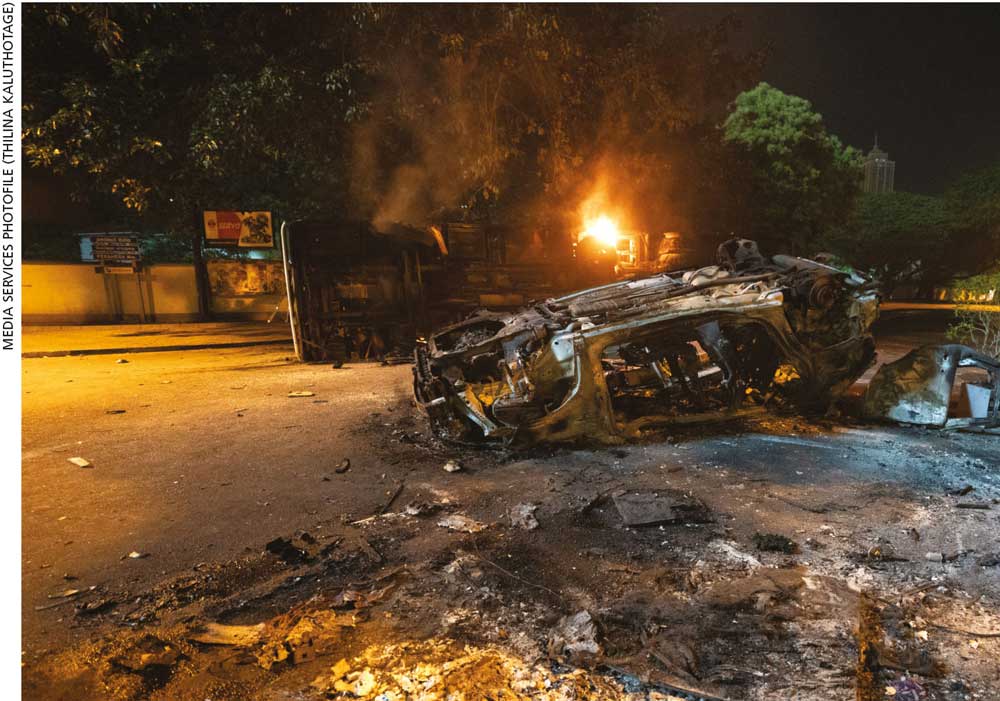NATIONAL RECONCILIATION

BUILD INTERNATIONAL GOODWILL
Dr. Jehan Perera says resolving the ‘ethnic conflict’ would yield goodwill

Public opinion against the government and its leadership took a turn for the worse with the economic crisis began to be felt since the beginning of the year. A shortage of foreign currency for imports had grown steadily worse with prices of essential commodities soaring up to 200 percent; and widespread scarcity of petrol, diesel and gas led to large, ill-tempered queues on the streets.
As the national crisis headed to a climax, which could include total economic collapse, a plethora of groups engaged in discussions to strategise the way forward. The National Council of Professionals was one such group that organised a public forum even as the political crisis seemed to face a stalemate.
There were nearly 1,000 participants at the event, and many speeches on what had gone wrong and that which was needed to put things right.
A business leader referred to a young man who had escaped recruitment by the Liberation Tigers of Tamil Eelam (LTTE) and fled to the UK. He had returned to Sri Lanka for a visit recently, having won an award for being one of the top 10 entrepreneurs in Britain.
His point was that this nation needs to harness the goodwill that exists for the country around the world including in the diaspora. He appealed to opposition leader Sajith Premadasa, who was the chief guest at the event, to mobilise this goodwill.
He said that as the son of a president who had been assassinated by the LTTE, Premadasa could be ‘a Nelson Mandela’ in overcoming the legacy of division and hatred. Divisions in the country due to ethnic nationalism and memories of the past are still not erased.
However, racism has not been visible at the mass protests where youth involved in the demonstrations carried slogans such as ‘No to racism!’ and ‘Reject politicians who use racism to get votes!’ The main thrust of the protests at Galle Face and other parts of the country’s south are directed against government leaders for being corrupt.
There were Tamil protestors who carried placards calling for justice for missing persons and their lands to be returned.
Leaders hailing from various walks of life explained the absence of mass protests in the north or east on the grounds that the campaigns in Colombo and elsewhere in the south don’t address the issues of the Tamil people.
The position taken by most activists has been that the Sinhalese people had not shown empathy or joined them when they struggled for their rights in the time of the civil war.
Similar sentiments were expressed by some of the Muslims present. Several hundred Muslim youth remain incarcerated due to the 2019 Easter bombings. They are being held under the Prevention of Terrorism Act (PTA) that permits prolonged detention without formal charges or bail.
Even those who had accidentally connected with suicide bomb squad leader Mohamed Zahran have been detained. Three years have passed and they remain incarcerated.
The shared problems of shortages, astronomical price hikes and power cuts provide a common cause up to a point – but it doesn’t go beyond that. Even today, more than a decade after the end of the war, the specific problems of the people in the north and east do not resonate with those in other parts of the country.
Sentiments expressed by people in the north and east are understandable. There should be enlightened leaders on both sides of the divide to say there’s a need to move forward and join hands to do so.
Government leadership needed of late to end this senseless war of attrition by acting according to the higher traditions of democracy – indeed, all mainstream political parties stand discredited.
Following the fateful attack on protestors at Galle Face, members of the government couldn’t face the general public anymore. Vigilante groups were on the move. Trust between the polity and citizenry needs to be restored. The government should be forthright in accepting responsibility for the disaster that has befallen the country under its watch.
There’s also a need for friendly countries to pitch in with much needed economic assistance to bridge the gap between now and the time at which a stable government can negotiate an agreement with the IMF.
The recent change of government leadership and fresh approaches may induce more international assistance for the country. The core message of the business leader at the professionals’ forum was that resolving the ethnic conflict could lead to an unlocking of international goodwill and assistance to Sri Lanka, and that this could be on a very large scale.




Leave a comment